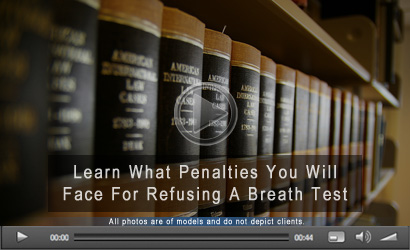Vermont DUI Laws
A criminal charge for Driving Under the Influence (DUI) of alcohol in Vermont should never be taken lightly. While individual sentences vary greatly depending on the severity of the case and a driver's past criminal and driving records, convicted drunk drivers can guarantee that there will be a long list of punishments, legal requirements and other serious consequences some of which can follow them for the rest of their life.
What Are Vermont's DUI Laws?
If you are facing a DUI charge, understanding Vermont's specific drunk driving laws is vital to being able to navigate the all the processes that follow an arrest and to getting the most positive outcome.
The following is a brief overview of Vermont's DUI laws.
Blood Alcohol Level (BAC)
In Vermont, if drivers are found to be operating or in control of a vehicle with a Blood Alcohol Content (BAC) over .08 they can be arrested and convicted for Driving Under the Influence (DUI). The limit for commercial drivers is .04, and the limit for minors or those operating a school bus is .02. Drivers found to be under the influence of drugs or a combination of drugs and alcohol will also be charged.
Implied Consent Law
Based on the Implied Consent Law, all drivers in Vermont who are pulled over and suspected of Driving Under the Influence (DUI) are required to take a blood or breath chemical test to determine their Blood Alcohol Content (BAC). Anyone who registers a BAC over .08 will be arrested for drunk driving. Those who refuse a chemical test will be punished harshly if they can not give good evidence as to why they refused the test.
Misdemeanor DUIs
Both first and second-time drunk driving convictions result in a misdemeanor charge. This charge is punishable by license suspension, possible jail time, large fines, alcohol education programs and other penalties. While both are misdemeanors, a second charge will result in much stiffer penalties.
Felony DUIs
Vermont is one of the few states that considers a third DUI conviction a felony. While all the consequences of a misdemeanor charge still apply, those facing a felony can expect a prolonged jail sentence (in state prison vs. county jail), steep fines, extensive alcohol counseling, home monitoring devices and more. Felony charges can be given to first or second-time offenders in extreme cases involving high BAC, severe injuries or death.






